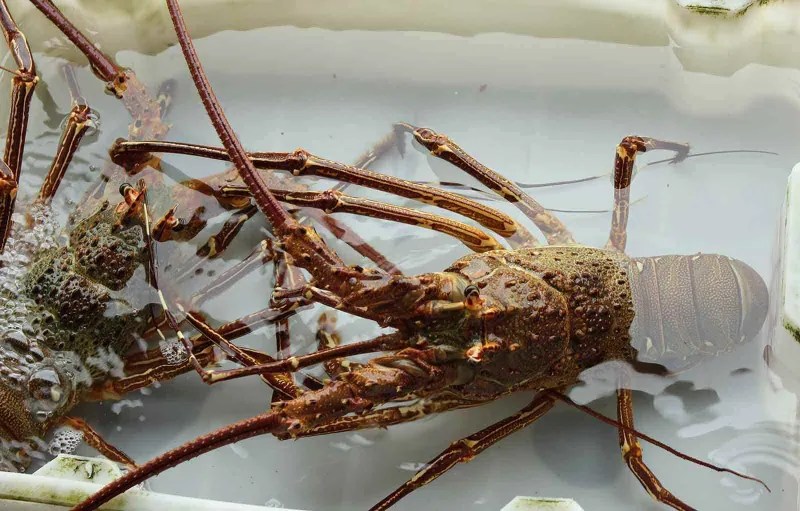
Celebrating and Protecting Saba’s Spiny Lobsters
Saba honors local seafood delicacy, The Caribbean Spiny Lobster with a three-day culinary event—the annual Saba Lobster Fest.
Saba is known for good eating—for such a small island there are an unusual number of interesting restaurants and many of the inns on the island are considered culinary destinations.
And there is also a legendary local seafood specialty—the Caribbean Spiny Lobster (Panulirus argus).
These denizens of the deep aren’t exactly what most people think of when they hear lobster—the spiny varieties from Saba don’t have the big claws that Woody Allen made famous in the kitchen scene in Annie Hall. But there is plenty of succulent lobster inside those hard shells—pound-for-pound more than their clawed counterparts—that is delicious grilled, steamed, roasted, eaten on its own, in salads, etc.
Next week, Saba will be honoring its spiny lobsters with a three-day culinary event—the annual Saba Lobster Fest (November 4th, 5th & 6th). Fabulous lobster-inspired lunch and dinner specials will be offered at participating restaurants all across the island.
Most if not all of these lobsters will have been caught locally in the famous Saba Bank—a 60-mile long stretch of submerged atoll (the third largest of its kind in the world) a few miles off the coast. It’s a place particularly rich in biodiversity: sea turtles, migratory Humpback Whales, thousands of seabirds, previously unknown examples of marine algae, critically endangered Staghorn Coral and hundreds of other sea creatures, including lots of spiny lobsters.
In 2012, the Saba Bank was designated a Particularly Sensitive Sea Area (PSSA) by the International Maritime Organisation (IMO), which has led to extensive conservation efforts including steps to prevent over fishing. While catches of spiny lobsters have in fact gotten smaller in recent years, according to an article posted by the Dutch Caribbean Nature Alliance, a number of regulations have been put into effect that show promise in stabilizing the population–such as bans on catching lobsters that are too small or are carrying eggs.
Conservationists are watching closely to see if this will enable long-term, sustainable harvesting of one of the Caribbean’s best known delicacies. Let’s hope for the best and a safe, sound way to enjoy future Lobster Fests.

For prospective students
Saba is committed to supporting prospective students with any questions or queries throughout the application process. Please see the following links for detailed information about each topic:
If the information you are seeking is not provided here, please get in contact by contacting via WhatsApp here.
Get in touch for more information